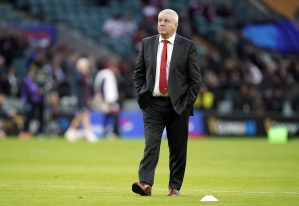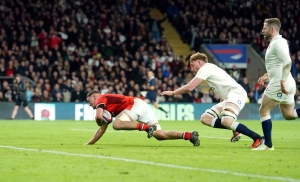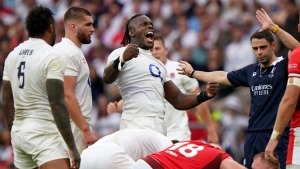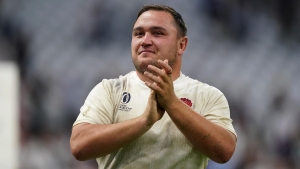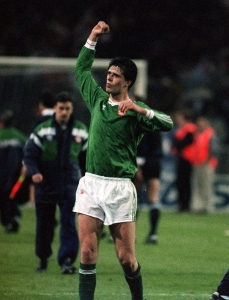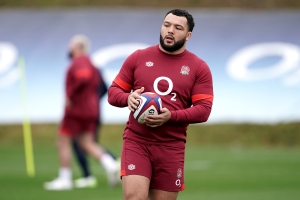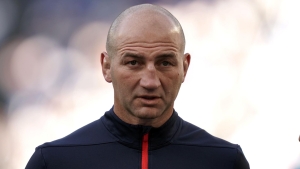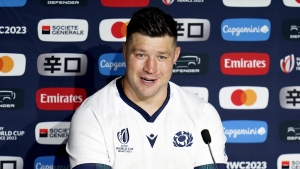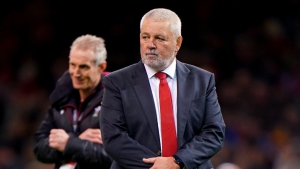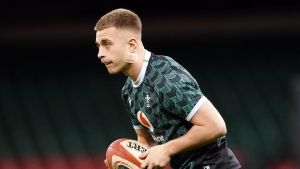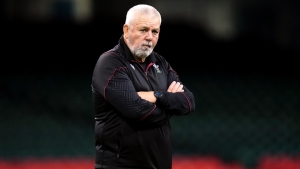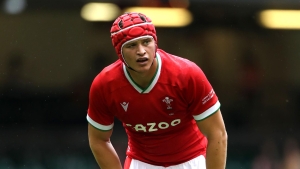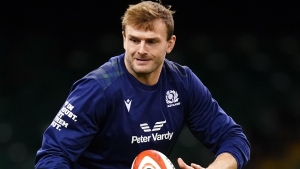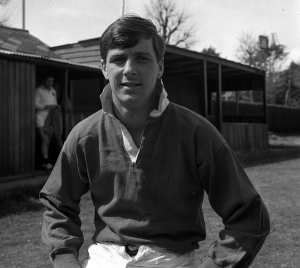Cameron Winnett and Alex Mann were junior school pupils when Wales last beat England in a Six Nations game at Twickenham.
But 12 years on from that Triple Crown-clinching victory, both Cardiff prospects will feature in one of rugby union’s most fierce rivalries after being selected to start against England on Saturday.
Their sporting careers have a symmetrical appearance, as both were promising footballers – Mann a centre-back in Cardiff’s academy – and they made debuts together for club and country.
They first played for Cardiff across the A316 from Twickenham against Harlequins as teenagers, while Winnett started the 27-26 Six Nations home loss to Scotland last weekend and Mann went on during Wales’ remarkable fightback from 27 points adrift, scoring his team’s fourth try.
Full-back Winnett, 21, was born on January 7, 2003 – flanker Mann on January 6 the previous year – and they look likely to be part of Wales squads heading towards World Cup 2027 in Australia and beyond.
Winnett describes Mann as being “like a big brother” and there is a noticeable chemistry between them, partly forged by their time together for Wales Under-20s, a team that Mann captained.
Reflecting on his Wales debut, Winnett said: “It was amazing, and everything I had worked for since I was a little kid with a dream.
“I was thinking about all the sacrifices my parents made, taking me to sessions, and all the coaches who had helped me get to that point.”
Mann added: “That is what we work for, really. All those days that are dark days or good days.
“Standing there was a bit surreal, I was just soaking it all in, really. It was probably the best day in the world.”
Mann’s football connection extended to events last Saturday, with his friend Isaak Davies scoring the winning goal for Belgian Pro League club Kortrijk against Charleroi at roughly the same time Mann appeared off the bench for his Wales debut.
Davies moved on loan from Cardiff to Kortrijk last summer, and Mann added: “He was the first I FaceTimed afterwards because he was in Belgium playing and he scored, funnily enough the time I came on, so it was a proud day for us both.”
“I started with Cwmbach, got scouted, and then went straight into the (Cardiff City) academy. The professional set-up, I think that has helped me a lot from a young age.
“Then I started playing rugby again in school, and I knew straightaway that was for me. It just came naturally, the way I am.”
Winnett played soccer as a junior at Rhondda club Cambrian and Clydach Vale, where Terry Venables was chairman and president. Venables’ mother Myrtle hailed from Clydach Vale.
“It had always been rugby and football,” Winnett said. “I played for my local team Porth growing up, and then Cambrian, where I had two seasons.
“After those two seasons, I thought I couldn’t keep on playing two games of soccer and rugby on the same day, so I decided to play rugby.”
Attention now turns to Twickenham as Wales target ending a run of seven successive defeats since toppling England there during the 2015 World Cup.
Mann said: “The senior boys in the group have helped us loads, settling us in. Anything I want to ask, they are more than happy to help.
“I am trying to be like a sponge, really, trying to listen to it all and take it all in.”





















